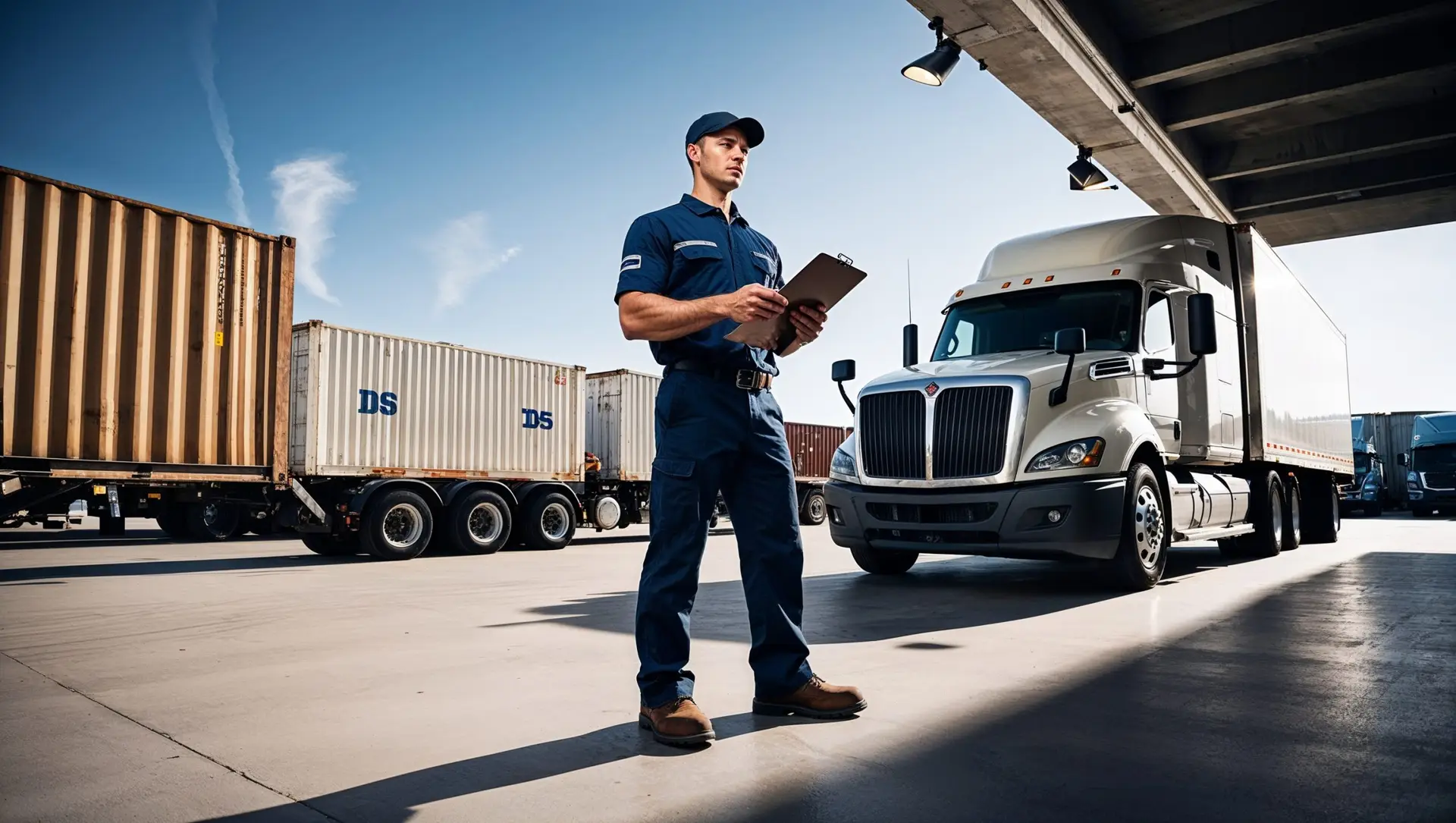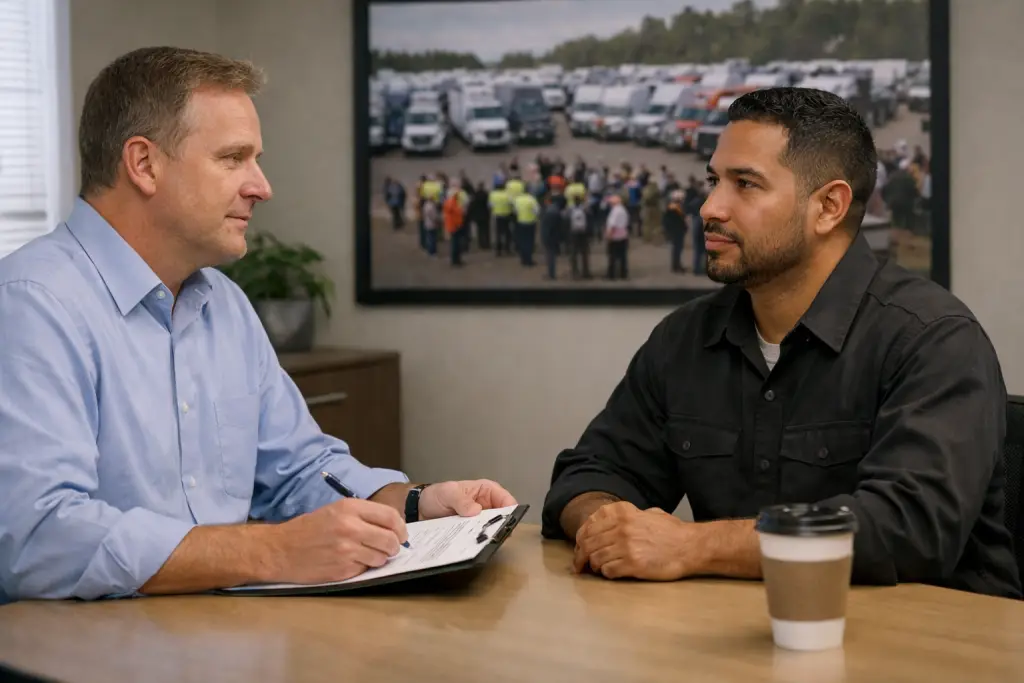The safety and reliability of transportation services are crucial in any bustling metropolis, especially in New York. For this reason, a robust background check is a standard procedure for transportation workers. This article serves as a complete guide to understanding the New York Transportation Worker Background Check, offering vital information to both prospective employees and hiring managers. We'll delve into the rationale, legal framework, procedures, and best practices involved in these checks. Through clear explanations and useful insights, you'll gain a thorough understanding of what to expect and how to effectively navigate this process.
Key Takeaways
- Background checks are crucial for ensuring safety and building trust in New York's transportation system by protecting passengers and companies alike.
- These checks comply with both federal and state regulations, including the Fair Credit Reporting Act and additional New York state laws.
- Different aspects such as criminal history, driving records, employment verification, and regular drug and alcohol testing form the backbone of thorough background checks.
- Candidate rights are protected through measures like consent, transparency, and the chance to correct errors, promoting fairness in the hiring process.
- Effective due diligence in background checks helps create a trustworthy workforce and keeps New York's transportation network operating smoothly.

Importance of Background Checks for Transportation Workers
When you look at the backbone of New York's transit system, it's clear that everything hinges on trust. Whether it's subways, taxis, or cargo trucks, people need to know they're dealing with reliable workers. This is where background checks come in. They're not just paperwork but a crucial layer of security.
- Safety and Security: Trusting passengers—and their lives—means ensuring that drivers and staff don't have histories that could put anyone at risk. A clean record helps guarantee this trust.
- Compliance with Regulations: Rules are rules. Companies need to stick to regulations or face fines. Background checks are a way to keep everything above board.
- Reduction of Liability Risks: No one wants to hire the wrong person and end up in a legal mess. Background checks can help steer clear of negligent hiring, saving companies from potential lawsuits.
In short, background checks are about keeping the system safe, legal, and trustworthy. They protect not just the company but everyone who uses New York's transportation network.
The Scope of New York Transportation Worker Background Checks
When it comes to transportation worker background checks in New York, the process covers a wide range of components aimed at ensuring the safety and efficiency of the industry. Let's break down the key areas involved:
Legal Framework and Compliance
Navigating the legal side of background checks for transportation workers involves understanding a mix of federal and state regulations. At the federal level, the Fair Credit Reporting Act (FCRA) sets out guidelines for conducting these checks. The FCRA requires employers to get written consent from candidates before delving into their backgrounds, and they must follow specific steps if they decide not to hire based on the report. This ensures transparency and fairness in the hiring process.
In the state of New York, there are additional layers of legal requirements. New York has laws that complement federal regulations, ensuring that background checks are conducted fairly and without discrimination. A key aspect here is adherence to the New York Fair Chance Act, which limits how criminal records can be considered in employment decisions. This law underscores a commitment to giving individuals with prior convictions a fair chance in the job market while maintaining high safety standards.
For those in roles regulated by the Department of Transportation (DOT), there are extra requirements. The DOT mandates rigorous checks, including drug and alcohol testing, to keep both workers and the public safe. These tests are non-negotiable parts of the screening for certain driver positions and involve set procedures to detect substance abuse, ensuring that safety is not compromised on the job.
In summary, companies must align their background checks with both federal and state laws, maintaining compliance with DOT regulations when relevant. This due diligence not only protects the company but also ensures a trustworthy workforce that can safely handle the demands of New York's transportation sector.
Standard Components of the Background Check
Criminal History Check
The criminal history review delves into whether applicants have a record that might suggest potential risks in a transportation role. This involves accessing databases to identify any past criminal activity and determining what would raise concerns. Common red flags typically include convictions related to violence, theft, or serious traffic violations.
Driving Record Check
A driver's abstract is crucial for those requiring a valid license for their role. It provides a snapshot of an applicant's driving history, highlighting infractions like DUIs or repeated traffic violations. This helps assure employers that candidates have a sound driving past and adhere to traffic laws.
Employment Verification
Applying for a job in transportation means that your work history comes under scrutiny. By verifying past employment, employers can ensure that candidates have been truthful about their job titles, lengths of service, and responsibilities. This step helps in evaluating whether the applicant possesses the necessary experience for the position.
Drug and Alcohol Testing
To maintain safety, regular testing for drug and alcohol use is conducted. The procedure is straightforward yet thorough, helping keep workplaces free from substances that could impair judgment or performance. Statistical data from various studies underscore its role in cutting down workplace incidents, affirming its place as a standard practice in transportation checks.
Privacy and Applicant Rights
Candidates must consent to have their backgrounds checked, emphasizing transparency from the start. If discrepancies arise, applicants have the right to dispute and rectify errors in the reports, ensuring a fair chance to clear up any inaccuracies that might otherwise hinder their employment prospects.
Frequently Asked Questions (FAQs)
Can a Criminal Record Disqualify Me?
When it comes to transportation jobs in New York, criminal records can complicate the hiring process, but they aren't always a deal-breaker. Employers usually look at the nature of the offense and how it relates to the position. For example, a minor infraction a decade ago might not weigh as heavily as a recent, serious charge. The New York Fair Chance Act also plays a significant role by requiring employers to consider the context of any criminal record before making a judgment. This means you have a shot at explaining circumstances and demonstrating how you've changed since the incident.
How Long Does the Background Check Process Take?
The length of a background check process can vary. Often, it takes a week or two, but some factors can stretch this timeline. Holidays, incomplete forms, or delays in getting records from past employers can add time. If you're waiting to hear back, check in with the hiring manager to see if there’s anything you can do to speed things up or provide additional information.
What Can I Do to Prepare?
Preparation is key before undergoing a background check. Clean up your social media profiles to ensure there’s nothing that leaves a bad impression. Also, verify your personal information on public records to catch and correct any errors. If you’ve got prior incidents to explain, have a brief and honest statement ready. This can show employers that you’re upfront and responsible.
Best Practices for Employers
Employers dealing with transportation workers have a lot to consider during the hiring process. Background checks are essential, but they come with legal and ethical responsibilities. Here are a few straightforward practices that can help:
- Compliance Checklist: Keep an easy-to-follow checklist to make sure you're on the right side of both federal and state laws. This includes adhering to the Fair Credit Reporting Act and New York’s individual regulations. Make sure every box is ticked to avoid potential legal headaches.
- Bias and Fair Hiring: Pay attention to fairness. It's crucial to conduct assessments without bias, ensuring every candidate gets a level playing field. Training hiring managers on unconscious bias is a good step toward unbiased hiring practices. Being fair isn't just ethical; it fosters a diverse and capable workforce too.
These steps ensure the integrity and fairness of your hiring process, protecting your organization and candidates alike.
Conclusion
Wrapping up, the New York Transportation Worker Background Check serves as a crucial step in maintaining the safety and efficiency of the transit system in one of the world's busiest cities. Both job seekers and employers benefit from a clear understanding of the processes involved, ensuring compliance with legal standards while promoting fair hiring practices. By attending to details like accuracy, consent, and applicants' rights, the whole system functions to protect not just companies and their clients, but also the employees themselves. Staying informed and prepared empowers everyone involved to participate confidently in this essential industry.
Definitions
Criminal History Check
A criminal history check is the process of reviewing an individual’s past criminal records to identify any offenses that might impact their ability to perform a job safely and responsibly. This typically involves obtaining data from court records and law enforcement databases to flag convictions or arrests relevant to the role. Employers use this check to assess the potential risks associated with hiring a candidate, with a focus on offenses like theft, violence, or significant traffic violations.
Driving Record Check
A driving record check is an evaluation of an applicant’s driving history through a Driver’s Abstract, which provides details such as traffic violations, license suspensions, and DUI offenses. This check is particularly important for jobs involving vehicles, as it helps employers gauge the individual’s responsibility and adherence to traffic laws. Ensuring a clean or near-clean driving record minimizes liability risks and promotes road safety within transportation roles.
Drug and Alcohol Testing
Drug and alcohol testing refers to the process of screening prospective or current employees for the presence of substances that could impair their performance. This involves pre-employment, random, or post-incident tests to detect drugs or alcohol in a person’s system, typically using urine or breath tests. These checks are mandatory for certain roles, especially under Department of Transportation regulations, and are part of broader efforts to maintain a safe and substance-free work environment.

GCheck Editorial Team
Meet the GCheck Editorial Team, your trusted source for insightful and up-to-date information in the world of employment background checks. Committed to delivering the latest trends, best practices, and industry insights, our team is dedicated to keeping you informed.
With a passion for ensuring accuracy, compliance, and efficiency in background screening, we are your go-to experts in the field. Stay tuned for our comprehensive articles, guides, and analysis, designed to empower businesses and individuals with the knowledge they need to make informed decisions.
At GCheck, we're here to guide you through the complexities of background checks, every step of the way.





